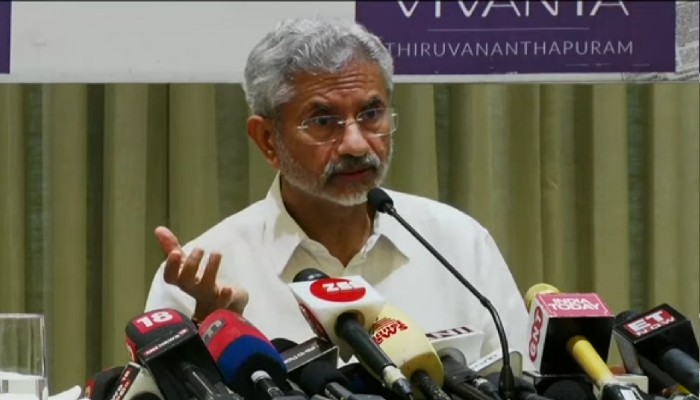The flow of authentic information is crucial to address misinformation, India said
Pointing out that the safety and security of UN peacekeepers should be of utmost priority, India has called for an effective communication strategy and better engagement with local communities in regions where the blue helmets are deployed.
Speaking at the UN Security Council Open Debate 'Key Role of Strategic Communications for Efficient Peacekeeping' on Tuesday, Secretary (East), Ministry of External Affairs Saurabh Kumar said peacekeeping operations were increasingly called upon for a wide range of responsibilities in addition to maintaining peace and security.
These included facilitating of the political processes, protecting civilians, disarming combatants, supporting elections, protecting and promoting human rights and restoring the rule of law, he pointed out.
In recent years, Kumar said, peacekeeping was facing another new challenge, which had been mounted by inimical forces and terrorist groups, who were increasingly using information technology to target blue helmets.
"There has been growing misinformation and disinformation campaigns adversely impacting the activities of the missions and putting lives of peacekeepers in danger. There are also misplaced expectations among local communities about the peacekeepers and regarding the mandate to protect civilians," he noted.
According to Kumar, such misunderstandings are further aggravated by use of ambiguous terminologies such as “robust mandate”, “robust posture”, or even “offensive posture”, in the peacekeeping mandate resolutions of the Security Council, creating room for speculative and arbitrary interpretation of these.
The MEA Secretary (East) explained that the flow of authentic information is crucial to address misinformation. "Communication through the right messengers is also extremely critical. Since disinformation comes in multiple shades, and as such targeted strategies for preparedness and response regarding different forms of disinformation need to be developed," he argued.
"Therefore, an effective communication strategy aimed at achieving these goals is sine qua non for peace operations," he said.
According to Kumar, the first step of an effective strategic communication of peace operations starts at the Security Council with drafting of comprehendible/implementable mandates. "The goals and objectives of missions’ strategic communications should clearly be defined in line with the mandate of the peacekeeping missions," he added.
Kumar also pointed out that India has been a pioneer in UN Peacekeeping since its inception, having deployed more than a quarter million troops, in as many as 49 UN Peacekeeping Missions.
"In keeping with this tradition, we have today more than 5,500 personnel deployed across 9 missions. Serving under the blue flag, 175 gallant Indian soldiers have made the supreme sacrifice, the largest number among troop contributing countries," he said.
 Contact Us
Contact Us  Subscribe Us
Subscribe Us









 Contact Us
Contact Us
 Subscribe
Subscribe
 News Letter
News Letter

